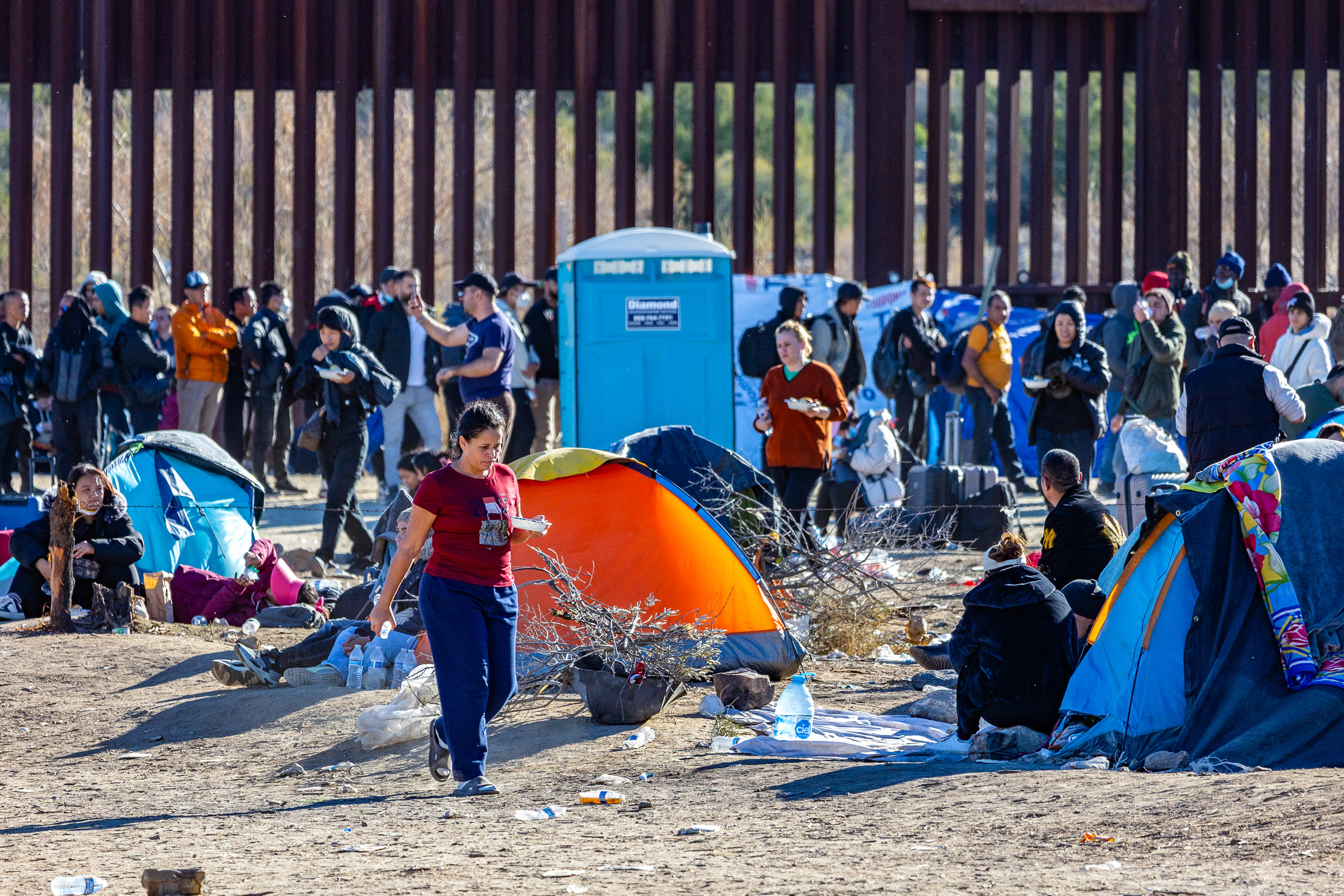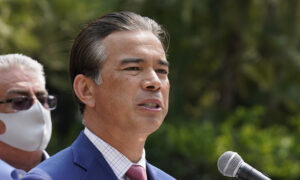The U.S. Department of Homeland Security (DHS) has unveiled a new rule that the government estimates will protect about 550,000 illegal immigrants from being deported.
A federal law called the Immigration and Nationality Act gives federal officials the ability to grant parole to illegal immigrants who are already in the United States. DHS officials are using the powers to grant protection to some illegal immigrants who are married to U.S. citizens, as directed by President Joe Biden.
The DHS said that the government is trying to keep families together and that “granting parole in place, on a case-by-case basis, to eligible noncitizens under this process will achieve the significant public benefit of promoting the unity and stability of families.”
The department also said that the move would increase the economic prosperity of U.S. communities, strengthen diplomatic relationships with partner countries in the region, and reduce the strain on limited U.S. government resources.
The rule covers spouses of U.S. citizens who had lived in the United States for at least 10 years as of June 17. The illegal immigrants must not have been found to “pose a threat to national security, public safety, or border security,” according to the DHS.
About 500,000 of the 765,000 noncitizens who are in the United States, married to U.S. citizens, and do not have lawful immigration status are estimated to be eligible for the extension of the parole authority. That’s the same estimate that the White House gave in June when the president first announced that officials would shield spouses.
Another 50,000 children of these immigrants can also apply for protection, provided that they’ve been in the United States since June 17, do not have certain crimes on their record, and do not pose a threat to national security or public safety, according to the rule.
Parole is a temporary measure that gives deportation relief to noncitizens, allowing them to extend their time in the country or seek more-permanent legal status.
Democrats have largely praised the move, which also involves giving the illegal immigrants work authorization.
“An estimated 55,000 immigrants in the Houston area are married to U.S. citizens and many of them will now be able to live, work, and raise a family without the fear of deportation,” Rep. Sylvia Garcia (D-Texas) previously said in a statement.
But some experts say the move may not be legal.
There will be “inevitable legal challenges” for the “legally questionable” rule, Andrew Arthur, a fellow in law and policy at the Center for Immigration Studies, which advocates for low levels of immigration, wrote in a blog post.
The DHS said that under its interpretation of the Immigration and Nationality Act, it has the authority to grant parole in place. It said in the rule that “DHS continues to believe that it reflects the best reading of the statute.”
The Florida Immigrant Coalition was among the groups praising the protection.
“Approximately 27,000 Floridian families will benefit from this new program,” Yareliz Méndez-Zamora, federal campaign leader for the coalition, said in a statement. “This is a much-needed relief, and we encourage the Biden administration to continue to use their executive powers to protect family unity, and to ensure that our long-term neighbors who have been caught in the traps of immigration bureaucracy have the opportunity to finally complete their formal residency application.”














